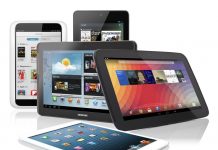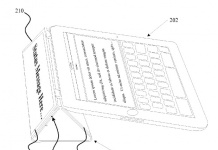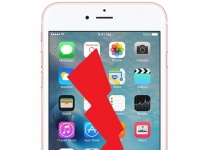 Is the iPad the “final nail in the coffin” for free wi-fi? According to the New York Times, it just might be, at least for hotels. iPads consume four times more wi-fi data per month than the average smartphone. And with more than 1 in 10 Americans owning tablets, and most of those tablets being iPads, and the tablet-owning class by and large overlapping with the class of people who stay at hotels, hotels are suddenly finding that the wifi bandwidth that had served them well in the last few years is no longer good enough.
Is the iPad the “final nail in the coffin” for free wi-fi? According to the New York Times, it just might be, at least for hotels. iPads consume four times more wi-fi data per month than the average smartphone. And with more than 1 in 10 Americans owning tablets, and most of those tablets being iPads, and the tablet-owning class by and large overlapping with the class of people who stay at hotels, hotels are suddenly finding that the wifi bandwidth that had served them well in the last few years is no longer good enough.
For business travelers, the ability to work from the hotel is crucial. But when everyone is browsing the Internet, or, worse, streaming video to their tablets, the bandwidth pipe slows to a trickle. A survey reports that almost 2/3 of business travelers had a poor Internet experience over the last 12 months, and more than 2/3 said they would not return to a hotel where that had happened.
David W. Garrison, chief executive of hotel and meeting Internet service provider iBAHN, suggests hotels may consider going to a tiered system in which basic Internet service is free, but higher bandwidth costs money.
“People are now carrying multiple devices. We see instances in hotels where people are using their laptop and their iPad at the same time, and maybe even have their smartphone on,” Mr. Garrison said. “As a business traveler, you’re trying to get work done and you need a guaranteed adequate connection. So don’t give me free Wi-Fi if it’s not going to work.”
I wonder how the proliferation of iPads is going to affect free wi-fi hotspots in general? Probably not as much as hotels, given that hotels have considerably more people logging onto the Internet at any given time than your average coffee house. I do remember seeing reports of Internet service slowing to trickles at conferences and events (including the time one of Steve Jobs’s demos was messed up by there not being any bandwidth left for it thanks to all the press live-blogging and tweeting), though that’s more due to having a huge concentration of people with any kind of wi-fi device gathered together than just the iPad per se.
On the bright side, e-books don’t require all that much bandwidth, especially if you have them saved on your device already. So I guess the moral is, be sure and load up your e-books before you go to a hotel, so you’ll have something to do if the wi-fi doesn’t work.

































I recently made a 10 day roaed trip in the USA, staying at a budget hotel every night.
All 10 hotels had free internet, 9 WiFi and one cable.
Only one hotel issued me with a user name and password. Both the user name and password were “guest” so this is hardly secure.
The first step, then is to give the hotel guest a secure user name and password when s/he checks in. This will stop people who park in hotel parking lots in order to get free internet service.
The next possible step would be to to provide a set amount of free download/upload capacity per room, per day, and to charge for exceeding this threshold.
In my experience, most hotels with free wifi have crappy bandwidth and spotty signals. This was true before iPads. If the hotel is near a coffee shop, I can often do better on the coffee shop’s wifi than the hotel’s, from my room. (Go buy a cup, get the password, enjoy!)
Most hotels really never planned for or bought a very good wifi service to begin with. These people think all it takes to support 300 people is some wifi modem on one of their cable connections at the front desk.
No surprise they are seeing cheesy setups get strained by actual use of people who expect them to have done the work if they advertised to provide the service.
I suspect Teddypig is right: “Most hotels really never planned for or bought a very good wifi service to begin with.”
The worst situation I know of is a large reading room at the University of Washington. In early afternoon, there are about 200 students there, most trying to access the Internet over a hopeless out-of-date WiFi system. Getting a simply web page can take a minute or more. That’s probably unfixable, but hotel rooms aren’t.
The problem isn’t hard to fix, although it will cost about one-night’s rent per room. Put 5.6 GHz WiFi in the middle of each room, taking care to reduce the power level so little RF gets to the next room and none beyond. Then alternate channels up and down the hall. Every room gets the full bandwidth, and there’s virtually no interference. They can stream HD video if they want and if the hotel’s raw Internet is wide enough.
Of course, the real solution is to set aside our fetish about doing everything wirelessly over two unlicensed bands. What we need is an Ethernet connection that’s as small and easy to connect as the power on a MacBook. That’d take care of all the situations–convention halls, libraries and the like–where wireless is utterly impossible. It’d also work in hotel rooms and college dorms. Made small enough, cell phones could include the connector.
I’m reading this on my iPad… from a restaraunt …. using the hotel next door’s wifi….